- Home
- Gerald Hammond
Whose Dog Are You Page 2
Whose Dog Are You Read online
Page 2
‘His trouser pockets had ripped although they were jeans. He didn’t have a jacket, just a thick sweater. There was a small compass in the pocket of his coat, a handkerchief, thirty pence in silver and one fired cartridge.’
‘And a whistle round his neck,’ I said. ‘Has the warden come across a shot bird?’
‘No. But that means nothing. He could have missed,’ the Sergeant pointed out. ‘Or a bird could have been carried out to sea. Or another fowler could have picked it up.’
‘The thirty pence suggests that he’d come across the Tay Bridge,’ Isobel said, ‘and he had the coins ready for going back.’
‘Not necessarily.’ My Barbour coat was hanging on the back of my chair. I reached round and felt in the right-hand pocket, producing forty-five pence. ‘I keep enough for the bridge toll and the car park machine in my coat pocket, ready for the next time.’
‘You were a Boy Scout,’ Isobel said. ‘You’ll arrive in Heaven with a condom in your pocket, just in case.’ (Sergeant Ewell’s eyes opened wide. He had not encountered Isobel’s bluntness before.) ‘He still sounds like a wildfowler to me. But his gun hasn’t been found?’
‘It would soon cover with mud,’ I said. ‘He could have winged a bird and, not having a dog, tried to recover it himself. Or if his dog seemed to be in difficulties he might have gone to the rescue. A dog often looks as if it’s on the point of drowning although they almost never do. But that’s one way he could have drowned.’
‘M’hm,’ said the Sergeant. He paused. ‘There’s one other thing. Just one . . .’
‘Out with it,’ Isobel said briskly. ‘You don’t have to be coy. Was he wearing lace panties under the jeans?’
‘Nothing like that,’ the Sergeant said hastily. He seemed deeply shocked. ‘It may have nothing to do with the mannie in the water, mind, but then again it may. Mr Cunningham mentioned a dog or the lack of one, and the man did have a whistle on him. There’s a spaniel bitch was brought in this morning. Apparently she’s been hanging around the houses on the golf course the last week or two, scrounging for food and stealing from dustbins, but they didn’t think of fetching her in to the police station until today. No collar,’ the Sergeant added severely.
‘Well, she wouldn’t have a collar,’ Isobel said. She had half turned in her chair, her papers quite forgotten. ‘Not if he – or somebody – was shooting. Collars get caught up in things. Dogs can be drowned or strangled that way.’
The Sergeant was nodding. ‘I was wondering . . . You’re spaniel folk. Would there be any way you could tell where she came from?’
I kept my mouth shut. Isobel could almost be seen to prick up her ears. She is our expert on gundog breeding and congenital faults. It is not a field which often has links with forensic science, but she and her husband Henry were devotees of mystery stories and plays. ‘There could be,’ she said. ‘It depends. Where could we get a look at her?’
‘I said you’d be willing to help. I have her in the car outside. She’s an amiable wee beast.’
‘Bring her inside then,’ Isobel said.
‘Aye.’ But the Sergeant sat where he was, fondling Jason’s ear. ‘There’s just one other thing . . .’ It seemed to be his favourite expression. ‘She’s coming into season.’
Isobel made a face. ‘In that case, some ghastly hybrid’s probably served her already. We’ll come out with you.’
The Sergeant got to his feet. ‘I don’t think so. Her hinder parts are a wee bit puffy but there’s no sign of colour yet.’
We followed him out to his panda car. A small liver and white springer was curled on the back seat. We looked at her through the car’s window. The tip of her stump of a tail twitched.
‘Working strain,’ I said. A show springer would have been larger, with a longer head and almost certainly more neuroses.
‘Obviously,’ Isobel said. She had brought a lead out with her. The Sergeant unlocked the car and the bitch accepted the lead and emerged cautiously, sniffing the air. The scent must have been reassuring, carrying traces of many contented dogs. When we made no threatening moves, she relaxed. She sat at Isobel’s feet and waited for whatever fate might bring. She was in a poor state, her coat matted and dirty. Her body was thin, which made it easier for Isobel gently to feel her joints. The bitch sat still, comforted rather than disturbed by the touch.
‘Well?’ said Sergeant Ewell.
‘Give us a chance,’ Isobel said. She was looking into the spaniel’s sad eyes. ‘No congenital defects. But even if I knew her, I wouldn’t recognise her in this state.’
‘Markings mean very little,’ I explained, ‘unless they’re very distinctive. Can you leave her over the weekend at the very least? When she’s been cleaned up and if she’s settled down a bit, we may be able to tell you something about her.’
The Sergeant made a small sound of relief. ‘I was hoping you’d say that.’ He paused, showing a trace of embarrassment. ‘This is the way of it. I’m doing this off my own bat. If I can produce a lead to the man’s identity, that’d be noticed by the highheidyins.’
‘And be remembered when the time for promotions came round?’ Isobel said, smiling. ‘We understand.’
‘That’s just how it is.’ He looked down at his shining toecaps. ‘At that time, the bosses are more likely to remember the men at HQ whose work and faces have been in front of them. Out here in the wilds, you have to struggle to be noticed. Ever since her brother went up to inspector my wife’s been on at me, asking why I’m still only a sergeant and when I’m going to be made up.’ He sighed and then straightened his back, recovering the dignity which he had let slip. ‘I’ll let St Andrews know. If anyone turns up to claim her, they’ll send them to you.’
‘With a written authorisation I trust,’ Isobel said. ‘She may belong to someone in St Andrews. On the other hand, you have the unidentified body of a shooting man and a gundog which seems to have been on the loose for a week or two. Some connection is at least possible. If she belonged to the dead man, there may be argument over his estate. I’m not handing over a possibly valuable bitch to the first person who knocks on the door. If I did that, she’d surely turn out to be a champion of champions and worth the mint. Sod’s Law,’ she added.
The Sergeant very nearly smiled. ‘You’ll get your written authorisation,’ he said. ‘Don’t let her go without it.’
‘We won’t.’
He gave the spaniel a farewell pat and got into his car. As he moved off, Isobel asked me, ‘What sort of whistle was the corpse wearing? Silent?’
‘No. Take one of those ordinary whistles out of the shop, the silver ones by Richards of Birmingham. If it wasn’t the same it was damn near it.’
The panda car was hardly out of sight before my big and rust-streaked estate car turned into the drive. I went out to help Beth unload.
‘I crossed with Sergeant Ewell in the village,’ she said. ‘Had he been here? What was it? A summons to appear at a fatal accident enquiry?’
‘According to the paper, the enquiry’s been put off to allow more time for enquiries,’ I told her. I began to explain but Beth, for once, was not inclined to delve into a mystery. As soon as I mentioned the new arrival it was the state of the bitch which concerned her and she bore the little springer away for an immediate bath, a good feed and the removal of several ticks which had flourished in the unkempt coat, leaving me to transfer three young spaniels back to their kennels and carry bags of foodstuffs into the house.
The results of Beth’s labour were to be seen by late afternoon.
Isobel and I had undertaken the main feed in order to leave Beth free, but we had knocked off at dusk for a drink and a planning meeting in the sitting room. Two of our brood bitches were due in season within the next couple of months but one of these was a daughter of Samson, our resident stud, and we had decided, after lengthy debate, against inbreeding. The coffee table was piled with extracts from Isobel’s records of past performances while we debated the choice of an alternative
husband of suitable pedigree. We had settled on the best contender, subject to the agreement of a suitable dowry, and had moved on to the question of gundog working tests in the coming months. These do not carry the status of field trials but they can be useful qualifiers.
Henry, Isobel’s husband, joined us, having walked the mile or two from their home. Henry was some years older than Isobel – who, when narked, was wont to say that he was well past his sell-by date – but I would hope to be half as spry and vigorous if I ever manage to reach his age. Henry’s share in our venture had been limited to providing Isobel’s share of the capital, but he was a good friend, a fount of sound advice and an invaluable standby whenever we found ourselves short-handed.
Beth and the unnamed springer found us indulging in chat and a modest drink. Beth was not usually slow to demand a small sherry when any kind of festivity is in progress, but on this occasion she waved it away. ‘How does this grab you?’ she demanded.
The question was clearly rhetorical. The springer bitch showed no inclination to grab anybody, she was far too busy showing herself off to the company. She had been shampooed and blow-dried and then brushed until she shone. A smell of Antimate followed her into the room. She was still thin, but most gundogs are lean at the end of the season. A breadth around her lower ribs suggested that a substantial meal had been gratefully received.
She was on her third circuit of the company, demanding and receiving our approval and petting, when Isobel suddenly said ‘Hup!’
The bitch sat.
‘So she’s trained to traditional spaniel commands,’ I said. I usually have a few rubber balls around for indoor training in miniature and when I rolled one of these into a corner she followed it with her eyes and sat tight. But when I said ‘Get on,’ she looked at me in puzzlement.
‘Hie lost,’ said Isobel. No reaction.
Henry said ‘Fetch,’ and the spaniel darted into the corner and brought him the ball. ‘Languages are a gift,’ Henry said complacently as he accepted it.
Beth had relaxed now that her protégée had been duly admired. She asked for a sherry and settled beside Henry on the settee. I topped up all our glasses. The fire had burned up and the room, which could look cheerless at times, danced to the tune of the flames.
‘That doesn’t tell us much,’ Isobel said, ‘except that she’s been trained as if for the gun.’
‘Or for obedience tests,’ I said.
‘Yes, and words of command are too damned idiosyncratic. But at least we can give her a workout.’ Isobel stared through her spectacles until the springer showed signs of bashfulness and retired behind my legs. ‘I keep thinking I’ve seen her before. Competing, I’m sure. But markings are a snare and a delusion; she’ll need some time to get her figure back and Beth’s got her tarted up like a show freak. If I could see her working . . .’
‘We could go out to the barn,’ I suggested.
Isobel shook her greying head firmly. ‘Let her settle down over the weekend. Put her in the isolation kennel with another quiet bitch and we’ll give her a test on Monday. I want to see how she works thick cover. Henry can come and be the other Gun, can’t you, Henry? May as well get as close to field trial conditions as is possible out of season.’
‘Delighted,’ Henry said. He paused and looked at me pop-eyed. ‘Could that body have been in the water for as long as a month?’ he asked. Isobel would certainly have given him the few details which we knew and Henry was visibly pleased to get his teeth into a mystery which was not fictitious.
‘You’d have to ask the pathologist,’ I said. ‘But I’d have thought not. Why?’
‘Because I looked in my diary. That’s how long it is since we’ve had heavy rain. We don’t have a lot of mountains to hold the water, this side of the Tay. The spate arrives quickly and drops as quickly.’
‘We made up our minds that the man was a wildfowler,’ Beth said. ‘Who else would be using such large shot?’
‘Somebody who was out at night, lamping a fox.’
‘You do talk a lot of nonsense sometimes,’ Isobel said indulgently. ‘Anyone after a fox at night would be local, so the police would know if he’d gone missing. And he had a compass in his pocket. Only wildfowlers carry compasses.’
‘But no permit to shoot on the Eden,’ Henry said.
‘It was probably in a trouser pocket,’ I said. ‘They were ripped.’
Henry nodded slowly and took a pull at his beer. ‘So he was a wildfowler,’ he said at last. ‘So where’s his car?’
‘In St Andrews, gathering parking tickets,’ Beth said. ‘They’ll find it. Come along, you,’ she added to the spaniel. ‘Out to the isolation kennel before you get too used to being a house-dog like that lazy lump of mine.’
Chapter Two
Henry and Isobel walked from their home on the Monday morning, Henry with his old gun slung in a sleeve over his shoulder. Each looked mildly hung over. They were a sociable pair but inclined to go over the top and for them Sunday night was usually party night.
Demarcation disputes were unknown in the partnership, but although we tried to remain flexible – we took rather a pride in our interchangeability – we tended to have our own specialities. I was the trainer. Isobel, who had the knack of thinking calmly in the stress of competition, did most of the handling in field trials; as a former vet, she oversaw the health of our stock; and much of the paperwork fell to her.
Beth had come to us as kennelmaid and had progressed rapidly to being mistress, partner, fiancée and, quite recently, my wife. She could and sometimes did train and handle the dogs as competently as any of us, but she stayed responsible for all the wearying tasks of the kennelmaid. She had taken a pride in restoring the newcomer to a good condition and she would have liked to see her in action. Her eyes followed us as we left for The Moss. The pups had been fed but the runs still had to be cleaned and the dogs exercised; and we tried never to leave the place unguarded or the phone unmanned.
We walked the half mile to The Moss. The day was dry and bright but cold. In view of her season the little spaniel was reeking of Antimate and almost rattling with Amplex tablets and we kept her on a lead until we reached The Moss. She stayed faithfully at heel but gave an occasional little dance of impatience. More than ever I was convinced that she had been trained to the gun. It was our habit to introduce the dogs’ mealtimes by firing a shot with the dummy launcher or a blank cartridge pistol – a trick which, by associating the sound of a shot in the dogs’ minds with their favourite experience, made gunshyness at a later stage unknown. At the sound, she had sat firmly – a basic step in gundog training.
Lacking any other name, we had christened the little spaniel bitch Anon. As we walked the rough ground, Isobel sent her out and she worked a good pattern ahead of us. Words of command posed an occasional problem but hand signals are universal.
Gamebirds, being out of season and aware of it, had mostly returned to their home coverts but a single cock pheasant exploded up, gaudy in the bright sunlight. Henry, on Isobel’s other side, fired a shot in the air. Anon sat quickly. The pheasant accelerated and sailed on, no doubt blessing Henry for his poor marksmanship.
So far so good.
It was another of our habits to save a few pheasants, unplucked, in the freezer against just such occasions. Beth had thawed one the day before. I dropped the bird surreptitiously in a clump of bracken and we walked on. From a hundred yards, Isobel handled Anon back. Anon responded at a good pace and soon found the bird. She was expecting a freshly shot bird and jibbed for a moment at the less familiar scent, but lifted it and came trotting back, head held high.
‘Does that tell you anything?’ I asked Isobel. I put the pheasant back in my game-bag. Dinner tonight would be special.
‘Give me time.’
An outbreak of myxomatosis had reduced the rabbit population to nearly zero, but the stunted trees in the middle of The Moss were on a flightline of woodpigeon between their roosting trees on the hilltop and a big rape-f
ield near the village. We tucked ourselves into hiding among the branches of small conifers. Twenty minutes and six cartridges brought four pigeon and four good retrieves.
We set off for home, glad to be on the move. Standing still, we had felt the bite of the cold.
‘She’s met woodies before,’ Henry said.
Isobel grunted. The comment was too obvious to need a reply. Woodpigeon are strongly scented and loose-feathered. Many dogs dislike lifting them at first. ‘Pity about the rabbits,’ she said. ‘I’d have liked to try her on ground game. I’m sure there was something . . .’
‘We can see how she behaves in the rabbit pen,’ I said.
‘It’s not the same thing in a pen,’ Isobel said.
The removal of a nearby tennis club, when the District Council had provided better facilities in the area, had enabled us to complete our facilities with the rabbit pen. The perimeter wiring had been transferred, by dint of colossal labour, to enclose half an acre of unused garden behind the house where bushes and weeds could be left to riot. The enclosed area had then been stocked with rabbits, both wild and domestic, fortunately before disease struck the local population; and so far our captives had resisted infection. The pen had turned out to be the most useful training facility of all. Chasing fur is an almost irresistible temptation to any dog, but regular training in the rabbit pen enabled us to sell our dogs warranted ‘steady to fur’. It was then up to the purchasers to keep them that way. Few of them managed to do so, but that was hardly our fault.
Beth must have been watching for our return. She met us with mugs of hot soup against the cold of the day and we carried them with us to the pen. I detoured by way of the kitchen garden to pull up some greens.
When I caught up with the others, Isobel was already in the pen. Anon was tight against Isobel’s leg. From time to time I saw her coat ripple as she gave a small shiver. A large, white rabbit, donated to us when a neighbouring family moved away, watched with pink eyes, quite unafraid.

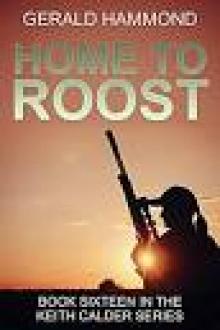 Home to Roost
Home to Roost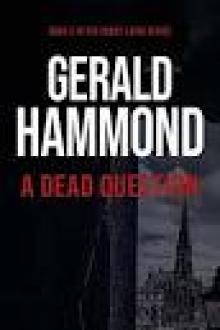 A Dead Question
A Dead Question Twice Bitten
Twice Bitten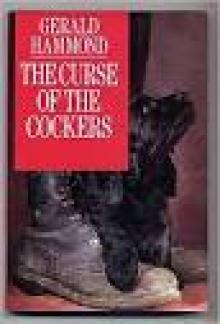 The Curse of the Cockers
The Curse of the Cockers In Loving Memory
In Loving Memory Illegal Tender (Three Oaks Book 12)
Illegal Tender (Three Oaks Book 12) Cold Relations (Honey Laird Book 1)
Cold Relations (Honey Laird Book 1)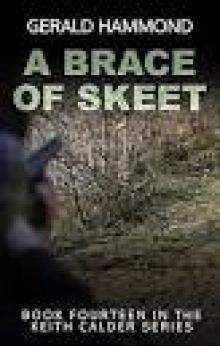 A Brace of Skeet
A Brace of Skeet Silver City Scandal
Silver City Scandal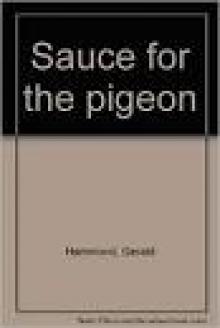 Sauce For the Pigeon
Sauce For the Pigeon Cold Relations
Cold Relations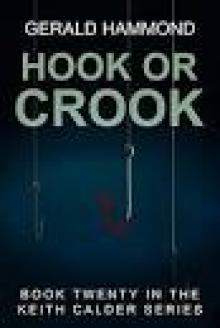 Hook or Crook
Hook or Crook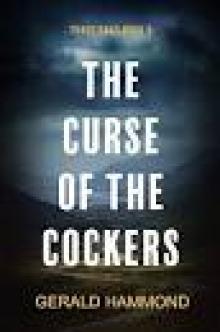 The Curse of the Cockers (Three Oaks Book 5)
The Curse of the Cockers (Three Oaks Book 5)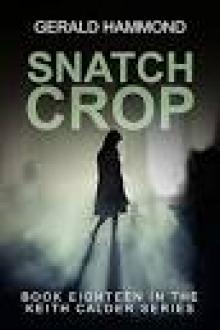 Snatch Crop
Snatch Crop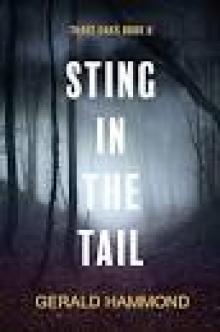 Sting in the Tail (Three Oaks Book 6)
Sting in the Tail (Three Oaks Book 6)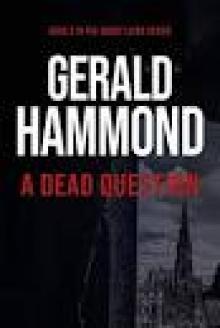 A Dead Question (Honey Laird Book 2)
A Dead Question (Honey Laird Book 2)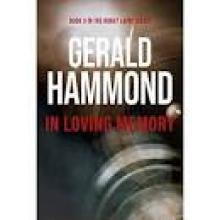 In Loving Memory (Honey Laird Book 3)
In Loving Memory (Honey Laird Book 3) Thin Air
Thin Air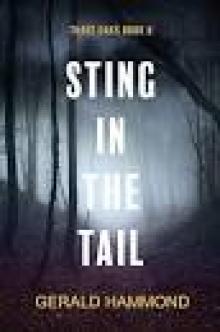 Sting in the Tail
Sting in the Tail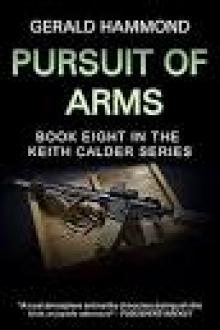 Pursuit of Arms
Pursuit of Arms The Game
The Game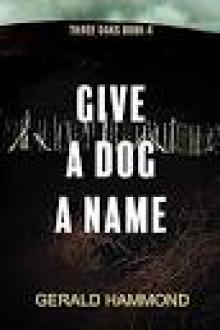 Give a Dog a Name (Three Oaks Book 4)
Give a Dog a Name (Three Oaks Book 4) Fair Game
Fair Game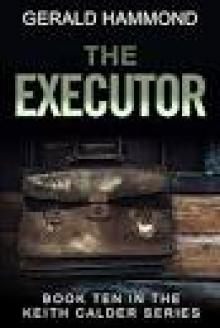 The Executor (Keith Calder Book 10)
The Executor (Keith Calder Book 10) Whose Dog Are You? (Three Oaks Book 2)
Whose Dog Are You? (Three Oaks Book 2)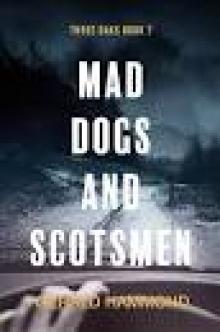 Mad Dogs and Scotsmen (Three Oaks Book 7)
Mad Dogs and Scotsmen (Three Oaks Book 7) Cousin Once Removed
Cousin Once Removed The Worried Widow
The Worried Widow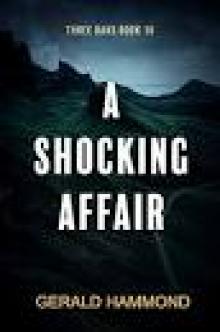 A Shocking Affair
A Shocking Affair Dead Weight (Three Oaks Book 11)
Dead Weight (Three Oaks Book 11) Whose Dog Are You
Whose Dog Are You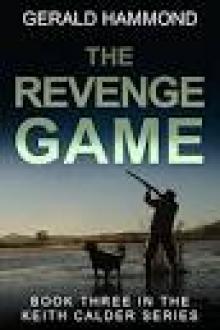 The Revenge Game
The Revenge Game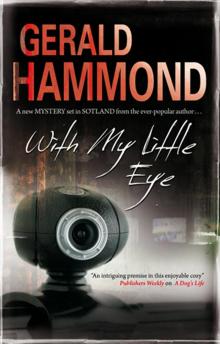 With My Little Eye
With My Little Eye Doghouse (Three Oaks Book 3)
Doghouse (Three Oaks Book 3)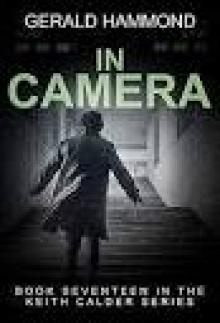 In Camera
In Camera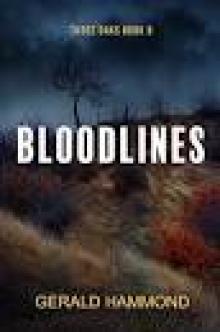 Bloodlines (Three Oaks Book 8)
Bloodlines (Three Oaks Book 8)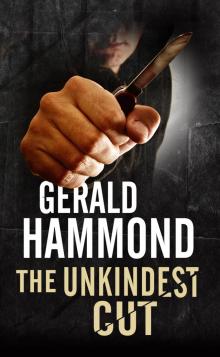 The Unkindest Cut
The Unkindest Cut